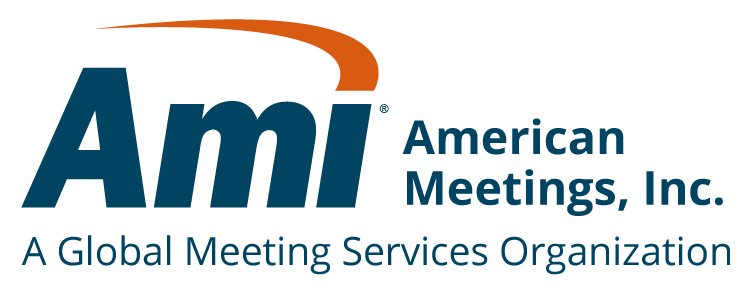
by levi_hb | Sep 26, 2019 | Meeting content and planning
When planning any event, the first goal is to get people in the door. With proper marketing, PR, and hype, you can grab attention, encourage sign-up, and populate your event with attendees. Of course, you must then deliver the event you promised in your promotional phase, and this can be hard to do when you and your event company create high expectations.
The only thing worse than low attendance is an event that doesn’t live up to its hype. When you disappoint attendees, they’re not only going to skip future events, but they’re likely to share their lackluster experience, essentially eliminating prospects for future events. This can be impossible to recover from. How can you and your event management team live up to the hype?

Don’t Over-Promise and Under-Deliver
Says Lilia Rosenfeld, Senior Meeting Manager at AMI, “It is imperative that you make good on promises. If you say your event is the best thing since sliced bread, you better deliver a loaf that has all the nutrients of 100% whole wheat but miraculously tastes like Wonder Bread. There’s no quicker way to disappoint guests than promising a new experience and delivering the same old event.”
How can you do this? Before your event company launches a marketing campaign filled with promises of novelty, get your event activities locked in. Fully develop your ideas about how to elevate your event before you start making promises and getting prospective attendees excited.
Work with Event Management on Experiential Marketing
Event attendees these days expect to be engaged. It’s no longer enough to provide celebrity speakers to talk at them – you have to offer opportunities for participation that make attendees feel like they’re immersed in the experience and contributing to the event. This is what experiential marketing is all about.
Your event management team could create an experience that features sets and actors that relate to your brand or the theme of your event. You could add opportunities for gamification, where guests compete and earn recognition and prizes throughout the event (individually or in groups). You and your event company can crowd-source ideas for activities or topics of discussion. Experiential marketing lets you extend a hand and invite attendees to participate in an immersive world you’ve created, elevating the experience for all.
Ask Your Event Company about Elevating Common Elements
Every event is going to have certain common elements, from sponsor promotions, to snack booths, to platforms for information dissemination. How can you go from already-been-done to delivering the wow factor with elements that every attendee already expects?
Elevating the atmosphere is a good place to start, and you can do this by adding over-the-top décor and technological touches like interactive displays, projection mapping, and apps designed to provide information, suggest opportunities for participation, and encourage sharing and connection with other attendees.
Your event management company can also help you find ways to work with sponsors to up their game by providing unique booths or offering opportunities for guests to personalize the experience. Some events feature swag that can be personalized while others might go wild with edgy additions like blowout bars or pop-up tattoo shops. You’ll have to tailor upgrades to your brand and your event, but these unexpected touches can definitely surprise and delight event attendees and help to create a memorable experience.

by levi_hb | Sep 20, 2019 | Meeting content and planning
Anyone who lives long enough and pays attention knows that the U.S. economy (or indeed, any economy) involves a lot of moving part, and goes through cycles of ups and downs. It’s not always easy to understand how business decisions contribute to the larger economy. As a business owner or conference organizer, you may look at events as little more than a major expense with no guaranteed returns, but that’s not true.
Meetings and events not only bring visibility and prestige to corporations, but according to a study entitled “Economic Significance of Meetings to the U.S. Economy”, commissioned by the Events Industry Council and conducted by independent global advisory firm Oxford Economics (with support from the Meetings Mean Business Coalition and other partners), corporate and industry meetings and events actually help to bolster the U.S. economy and contribute to a stable job market.

It’s important for corporate event hosts to understand the value they gain from booking a venue, finding notable speakers, planning activities, and hiring a certified meeting planner from a reputable global meeting services organization like American Meetings, Inc. (AMI). Events certainly entail some up-front expense, but corporations that host such gatherings can gain a lot in return and support a strong U.S. economy in the process, which is good for business. Here are just a few things you should know about the importance of meetings and events when it comes to maintaining a thriving U.S economy.
Meetings and Events Fuel Domestic Spending
The 2019 report on “Economic Significance of Meetings to the U.S. Economy”, updated from the prior version released in 2009, shows the positive economic impact meetings and events have on the U.S. economy. For starters, meetings and events generate hundreds of billions of dollars in spending annually, significantly contributing to the GDP.
In 2016, an estimated 1.9 million meetings and events were held across the U.S., generating approximately $325 billion in direct spending and $845 billion in associated business sales. This, in turn, contributed about $446 billion to the GDP, as well as generating an estimated $104 billion in federal, state, and local taxes.
Meetings and events also contribute significant amounts of money to specific segments of the U.S. market. Business services saw the greatest spend in 2016, generating an estimated $196.3 billion related to meetings and events. Finance, insurance, and real estate collectively brought in $141.1 billion, while the manufacturing industry claimed $92.6 billion. Food and beverage industries contracted to provide meals and refreshments for meetings and events raked in an estimated $48 billion, while hotels providing lodgings for event attendees saw about $50 billion in spending on accommodations, thanks to the call for 300 million rooms.
Tourism is another industry that flourishes thanks to meetings and events, with guests traveling from all over the globe to attend. An estimated 13.2% of spending on travel and tourism in the U.S. is associated with the meetings and events industry. Interestingly, international attendees only make up about 2% of the guests at U.S. events, but they account for 11% of associated spending, likely because they extend their trips to include vacation time abroad. This accounted for $38 billion in direct spending alone in 2016.
Anyone who doubts the positive impact of meetings and events need only look at the spending and revenue generated by this industry. According to Kelly Cabitt-Miller, Sr. VP of Internal Operations at AMI “Spending on meetings and events continues to grow year over year, and this benefits business that see returns from their spending, associated industries that provide goods and services, and the U.S. economy as a whole.”
Jobs Go Beyond a Certified Meeting Planner or Conference Organizer
In addition to creating a platform for spending that contributes to the U.S. economy, the meetings and events industry also helps to support the U.S. job market. Naturally, meeting services organizations are positively impacted by annual increases in meetings and events, which help to support the market for a variety of professional positions, such as certified meeting planner, meeting coordinator, conference organizer, travel director, creative director, event technology specialist, and more.
However, meetings and events also funnel money into several adjacent industries, namely hospitality and tourism, providing the basis for stability and even job growth. Event hosts must work with their conference organizer or event planner to book a suitable venue, decorate for function and visual appeal, provide catering for guests, make arrangements for travel and lodgings, and book entertainment. This spending supports millions of jobs across the U.S.
In addition, corporations must hire professionals that are capable of planning and executing meetings and events, not only through outsourcing, but among their ranks of employees. Marketing, PR, and event specialists could find work in a diverse array of industries, from healthcare and legal, to retail and technology, and beyond. Meetings and events are noted for supporting more direct jobs than giants in manufacturing, telecommunications, and even oil and gas.
Participation in Events Continues to Increase
Many businesses already recognize the benefits inherent to hosting meetings and events, even if they aren’t necessarily aware of the benefits to the U.S. economy. Because businesses are willing to spend to create attractive and memorable events, more and more people attend meetings and event each year, and this, in turn, fuels the growth of the industry.
The event industry continues to grow, as do adjacent industries like tourism and hospitality, and the revenue generated by meetings and events is inextricably linked. Between 2009 and 2016, direct spending on corporate events grew by 23%, and every dollar spent resulted in an additional $1.60 in economic benefits for the U.S. This is due almost entirely to the growing number of people interested in attending events. In 2016, 251 million participants attended meetings and events.
For corporations considering hosting meetings and events or debating continuing a long tradition of doing so, the proof is in the pudding. With talented and creative experts like the professionals at AMI to ensure that every meeting and event shows the greatest returns, you can make the most of your spending, while contributing to a stable and supportive U.S. economy as an added bonus.

by levi_hb | Aug 22, 2019 | Meeting content and planning
It’s easy to figure out how much you make from registration at your event, even if you offer different tiers of access at varying prices. That said, meetings and events can be expensive to host, and you and your global meeting planner need to consider the best ways to recoup costs and earn a profit if possible. A lot of return can come from selling out tickets, but you can do more.
Whether you’re selling food and beverages, offering branded or event-themed merchandise, or providing popular products like phone chargers and handheld fans, there are ways to earn more during the course of your event. Don’t forget about revenue that comes from sponsors, exhibitors, and vendors that want to participate and are willing to pay a fee or a percentage to do so. It all goes in the pot, so to speak.
With all the hubbub, you and your event organizer could have some trouble keeping track of the money attendees spend at your event.
 How can you track it so you don’t have to spend so much time separating revenue streams after the fact? Here are a few tricks you should have up your sleeve.
How can you track it so you don’t have to spend so much time separating revenue streams after the fact? Here are a few tricks you should have up your sleeve.
Ask Your Convention Planner to Customize Payment Tracking Technology
Calculating how much attendees spend at your event first requires you to compile all the necessary data, and the easiest way to do this is with integrated payment tracking technology that puts all your eggs in one basket, so to speak. If you have to rely on vendors and event staff to deliver sales data, your overall picture could be understandably spotty.
With a single, integrated POS platform in place to track and report sales data, you’ll have all your data in one place and you can organize it as you see fit. This may require custom software, so you should discuss the possibility of hiring an experienced developer with your convention planner.
Work with Your Event Organizer to Track Top Spenders
It’s not enough to look at total sales if you want to optimize spending at future events. You need to know who is spending the most and what they’re buying, or alternately, which items seem to be the most popular. You and your convention planner can use this data to cater to top spenders and carefully choose which merchandise to offer at future events.
Take Notes on Contributing Variables
When you and your event organizer look over the numbers, it’s important to note why sales of certain items may have lagged at a particular event while others sold like gangbusters. Environmental factors can play a role and understanding them can help you to plan for greater success at future events.
Says Maria Coker, Meeting Planner at AMI, “If you host an outdoor event, pay attention to the weather. A warm day might result in increased beverage sales, whereas a cold day could see greater merchandise sales if you offer branded hoodies and scarves, for example. Morning events might not see the same alcohol sales as an evening affair. These variables can affect earnings and profit margins, but help you to spot trends and increase profitability down the road.”
Tracking spending data, breaking down sales, and considering contributing factors can all help you and your event organizer determine not only how much event attendees spent, but also how to increase profits moving forward.

by levi_hb | Aug 8, 2019 | Meeting content and planning
You might think you can go it alone when it comes to planning and executing your company’s next big meeting, conference, or other event. The truth is that you could probably pull together an adequate event with only minor hiccups. But why would you struggle to pass with an average grade when you could partner with reputable corporate event planning companies to create a truly impressive spectacle that attendees will talk about for years?
If you want your next event to draw a crowd, create FOMO, and compel attendees to sign up for future events, you’ll find that there are major advantages to hiring a global event management services company like American Meetings, Inc. (AMI) to take the reins. Here are just a few benefits you’ll gain when you partner with corporate event planning companies.
Corporate Event Planning Companies Deliver Expertise
Unless you already have some background in corporate event planning, you probably don’t have the same level of knowledge and experience as the trained professionals at corporate event planning companies. Neither do they have your particular expertise – they probably couldn’t step in and do your job.
The point is that you need to play to your strengths and partner with professionals that are proficient in areas foreign to you. Says Lilia Rosenfeld, Senior Meeting Manger at AMI, “Event planners are good at what they do because they learn a lot as they go. Constant innovation yields hits and misses, but overall it makes us better at listening to clients, offering guidance, and getting it right down the line.”

Experts Can Help You Plan and Stick to a Budget
It’s not entirely surprising event hosts lack awareness of the costs involved in planning and executing corporate events. Why would you know the cost range for renting venues and hiring caterers and entertainers, for example? Event management services providers, on the other hand, are well aware of related costs for the various facets of their industry and they can help you to maximize an existing budget or even create a workable budget if you’re really lost.
Event Management Services Have Connections You Don’t
Because of existing relationships and insider knowledge of costs, your partner in event management services has the leverage to negotiate in ways you would be unable to. While you might have trouble booking a popular venue for your event date or gaining access to the hottest entertainment, your event planning company could get the job done using an established network of connections and dealing in favors.
Insider Knowledge Takes Your Event from Concept to Reality
Corporate event planning companies have the knowledge and skills to interpret your vision and translate it into a concrete plan. While you might ask for something “edgy”, not really knowing precisely what you want, your event planning service could offer you options for utilizing current technologies to wow attendees, boost engagement, and encourage online sharing, just for example.
Assistance Beginning to End, and Beyond
An event planning expert like AMI can help you to plan and promote your event, implement logistical elements, add innovative technologies, and manage events in progress. You’ll also get follow-up services like surveys and metrics to gauge the success of your event. Partnering with a reliable and innovative global meeting services organization like AMI comes with so many advantages that businesses simply can’t afford to ignore.

by levi_hb | Jun 27, 2019 | Meeting content and planning, Uncategorized
Every meeting and event features a lot of moving pieces, but with a stellar event company to help manage the details, hosts can juggle concerns about the venue, lodgings, catering, staff, the schedule, event attendees, and more. It’s not like you’re reinventing the wheel, but you definitely don’t have the bandwidth to do everything on your own.
Unfortunately, snafus can occur, even if you think you’ve planned for everything. The weather might not cooperate at outdoor events. Keynote speakers might get stuck in traffic. A competitor might send a social media influencer to pan your event. None of these things are within your power to control, but you can put a backup plan in place to account for certain potential problems and you can control how you react to unexpected setbacks.
It’s also best to be aware of the most common problems so you can find ways to get out ahead of them instead of scrambling to play catch-up when your event is in full swing. Here are just a few common risks you and your event management team should consider well in advance.

Create a Realistic Budget
One of the most common issues hosts and event management partners come up against is a budget that balloons out of control. The good news is that this is also one of the easiest potential problems to account for early in the planning process.
It’s not always easy to know what an event will entail going in, but planners likely have a few ideas about the general theme and the number of attendees, two key factors in creating a workable budget. If there’s time, it’s best to round up some estimates for major costs like travel, venue, lodgings, and catering at your preferred event location so you can use that as a basis for creating a budget. If you’re stuck with a set budget from the get-go, you’ll simply have to work with what you’ve got and allow it to dictate certain factors like location.
What you don’t want to do is blow your whole budget on a must-have celebrity speaker or a lavish event destination that’s sure to impress, but that you can in no way afford. Start with a budget based on preliminary estimates and make sure to leave some wiggle room for overages, which are almost certain to occur. Setting aside 20% of your budget at the outset and keeping track of every expense means you could have a little extra at the end to upgrade catering, add wow factor to the décor, or hire additional support staff.
Have Your Event Management Company Perform Security Assessments
Of all the problems that could occur at an event, the one you most want to avoid is a security issue that puts guests in peril. The country music festival in Las Vegas is an extreme example, but it serves as a vital warning to every host and event company. Do not left any stone unturned when it comes to planning for adequate security, including asking professionals to assess risks and create a plan for potential disaster scenarios.
Work with Your Event Company to Troubleshoot Logistics
Generally speaking, your events are not going to come up against catastrophic failure scenarios. You’re much more likely to end up dealing with a host of minor logistical issues like uncooperative weather, long lines at registration, malfunctioning technology, communication breakdowns with on-site event staff, ferrying out-of-town guests, and so on.
Says John Cotter, COO at American Meetings, “Having an experienced and forward-thinking event management partner to help you pinpoint potential problem areas, implement solutions, and create a backup plan in case things go south is absolutely invaluable. Managing the many logistics involved in a complex event is what these professionals are paid to do.”
Control the Narrative
The best laid plans of mice and men often go awry, but you can recover from nearly any shortcoming if you spin the narrative in your favor. You have little control over what event attendees post on social media, which is why you go out of your way to create an impressive, engaging, and enjoyable event that prompts rave reviews.
Sadly, things don’t always go exactly as you planned, and problems at the event can lead to backlash on social media. You can turn this narrative to your advantage in a couple ways. Everyone knows that problems can occur, and when they do, your response is critical.
You must respond quickly to acknowledge and address the situation, and you have to offer impacted attendees something extra to turn their negative experience into a positive one. With the right response and customer service that goes above and beyond, you and your event company can shift the narrative and come out on top.

by levi_hb | May 30, 2019 | Meeting content and planning
If you had an unlimited budget, you could host the most magnificent event the world has ever seen – and if wishes were horses, beggars would ride. Since you have to work within the confines of a budget, it behooves you to face the harsh realities and team up with a trusted global meeting planner to create the best event possible with the cash on hand.
This means making every dollar count, which requires innovation, negotiation, and careful planning. Frugality and creativity go hand-in-hand. The good news is, you’re not necessarily reinventing the wheel, and you’re bound to find that a little can go a long way when you and your corporate meeting planner put your heads together to come up with viable solutions.
How can you create a truly spectacular and memorable event when you’re working on a shoestring budget? Here are several ways to squeeze more out of your meager event budget.
1. Cultivate long-term relationships. Chances are you’re not simply hosting one event. Although you’re planning a single event right now, you know there are more in the pipeline, and you can use that to your advantage when it comes to cutting costs for your current event. All you have to do is consider booking venues and vendors for multiple events in order to negotiate for discounts.
Says Tessa Cameron, VP, Strategic Sourcing at AMI, “Vendors don’t have any real motivation to provide discounted rates to one-off clients. However, if they know there’s repeat business coming their way, they may be much more inclined to throw you a bone and offer a deal in order to ensure future business.”
Long-term relationships can net you major discounts and deals, especially if you make a vendor your first choice and even refer them to trusted contacts.
2. Negotiate like a pro. You may have to lean on your corporate meeting planner to handle negotiations early on, especially if you’re not entirely familiar with the ins and outs of venue and vendor contracts. When it comes to negotiating pricing, the devil is in the details, so you need a good understanding of what constitutes needed costs.
Could you get a better rate on a venue by shifting your dates? Do you have to use on-site catering or can you bring in outside vendors? Are there food and beverage minimums and are they in any way negotiable? Knowing what to ask about when it comes to contracts can help you to whittle down costs one service at a time.
3. Tap your corporate meeting planner to split events. Networking can be a great way to find quality goods and services at low costs, but you may also have the opportunity to split costs for your event if you can team up with another upcoming event. The best way to do this is probably to ask your corporate meeting planner to connect you with another client that’s also seeking cost-saving alternatives.
Perhaps you can split an event space and share services like catering and promotion in order to save on every front. It won’t be easy finding a compatible partner that’s working with a similar budget and has comparable requirements for catering, hospitality, and venue, but this is where a trusted event planner can really prove their worth.
4. Get creative with venues. Who says you have to host your event in a hotel or a convention center? Just because these are traditional venues for corporate events doesn’t mean you have to limit yourself and stress your budget to uphold outdated standards. Instead, speak with your global meeting planner about the potential for using alternative venues like parks, zoos, botanical gardens, museums, libraries, or historical buildings, just for example. There’s a good chance you’ll save some dough on booking fees and you have the opportunity to really wow guests with something they haven’t experienced before.
5. Reuse materials whenever possible. Big-picture thinking can help you to save in the long-term, as well as the here and now. Many event hosts get caught up in the idea of presenting something new and amazing, but the truth is that you can actually reuse a lot of materials from old events by just sprucing them up and adding a few new touches. Foundation materials like tents, booths, tables, chairs, displays, and more can simply be re-skinned, so to speak, to create an entirely new dynamic and suit your upcoming event theme.
6. Ask your global meeting planner for tips to do a lot with a little. Adopting a less-is-more mentality is essential when dealing with a limited budget, but it’s important to understand that the little has to offer major appeal. For example, you may not have the budget to cater an expensive dinner for guests.
What you can do instead is offer a cocktail hour or dessert bar so that guests still have a chance to socialize and grab a nibble, but you don’t have to pay full price for a five-course meal. Just make sure you go for quality so guests don’t feel like they’re missing out.
7. Offer exclusive merch. If you’ve exhausted avenues for cutting costs, it’s time to start thinking of ways to add more wiggle room to your budget with an influx of cash. One way to do this is to work with your global meeting planner on exclusive merchandise in limited quantities.
You’ll want to come up with a clever idea for items that match the theme and tenor of your event and that appeal to event attendees. Branded, reusable water bottles are a popular choice since attendees walking the event floor are bound to get thirsty.
Tote bags are also a smart option that add convenience as attendees can easily carry all the promotional materials they pick up at exhibit booths. Choosing the merchandise that makes sense for your particular event and speaks to your audience can definitely help to add some padding to your budget.
8. Boost registration. Getting the word out and encouraging attendance is the best way to bulk up your budget, so come up with a catchy name, a creative theme, and a sound marketing strategy early on to start seeing sign-up and get the dollars rolling in.






 How can you track it so you don’t have to spend so much time separating revenue streams after the fact? Here are a few tricks you should have up your sleeve.
How can you track it so you don’t have to spend so much time separating revenue streams after the fact? Here are a few tricks you should have up your sleeve.
